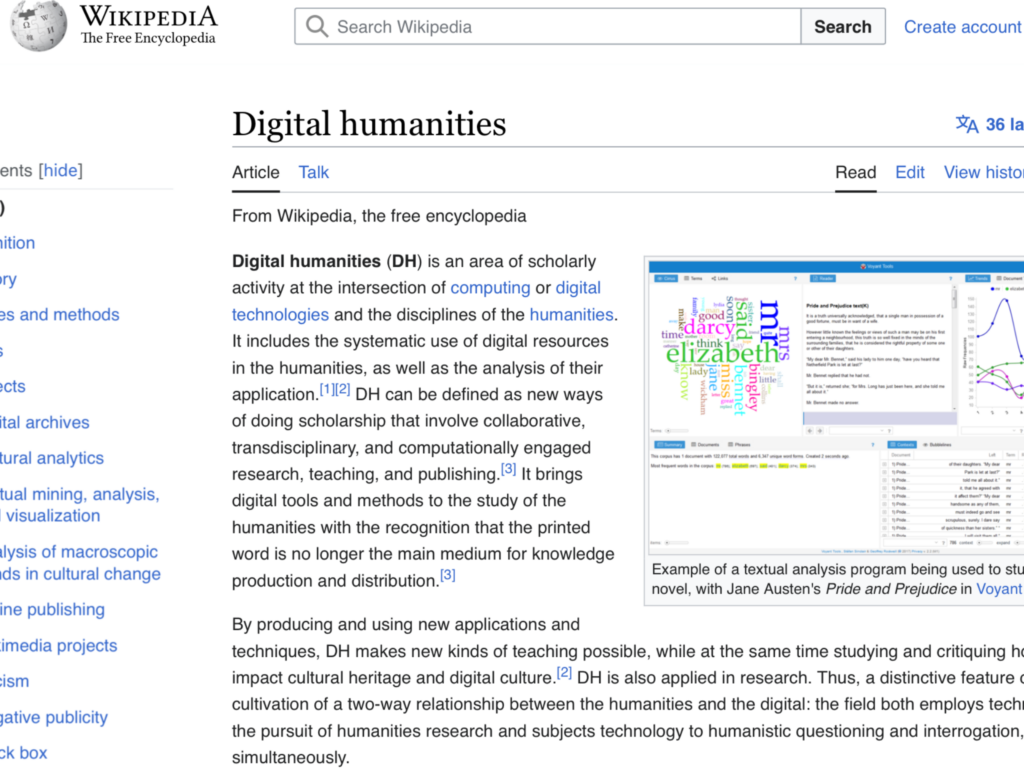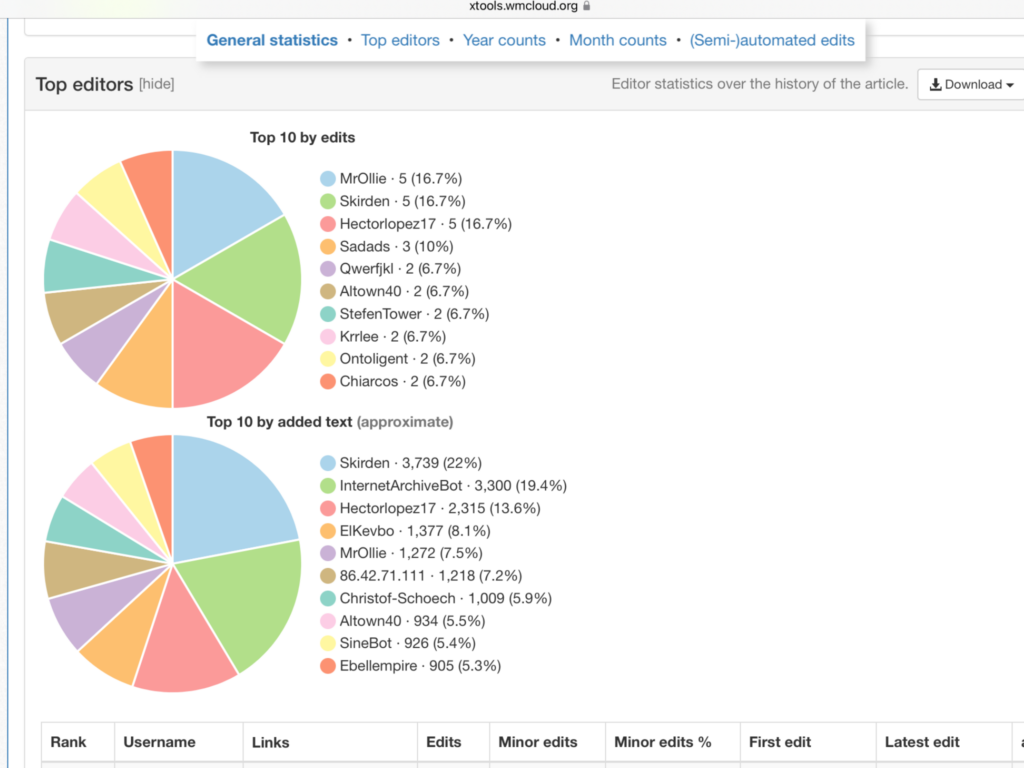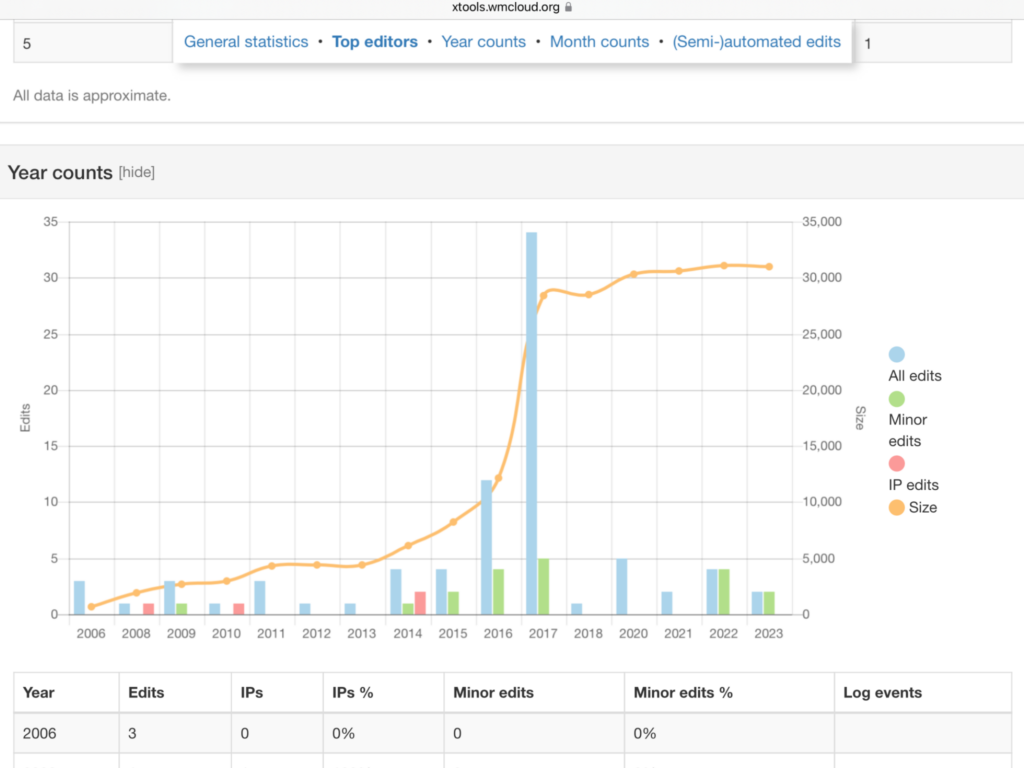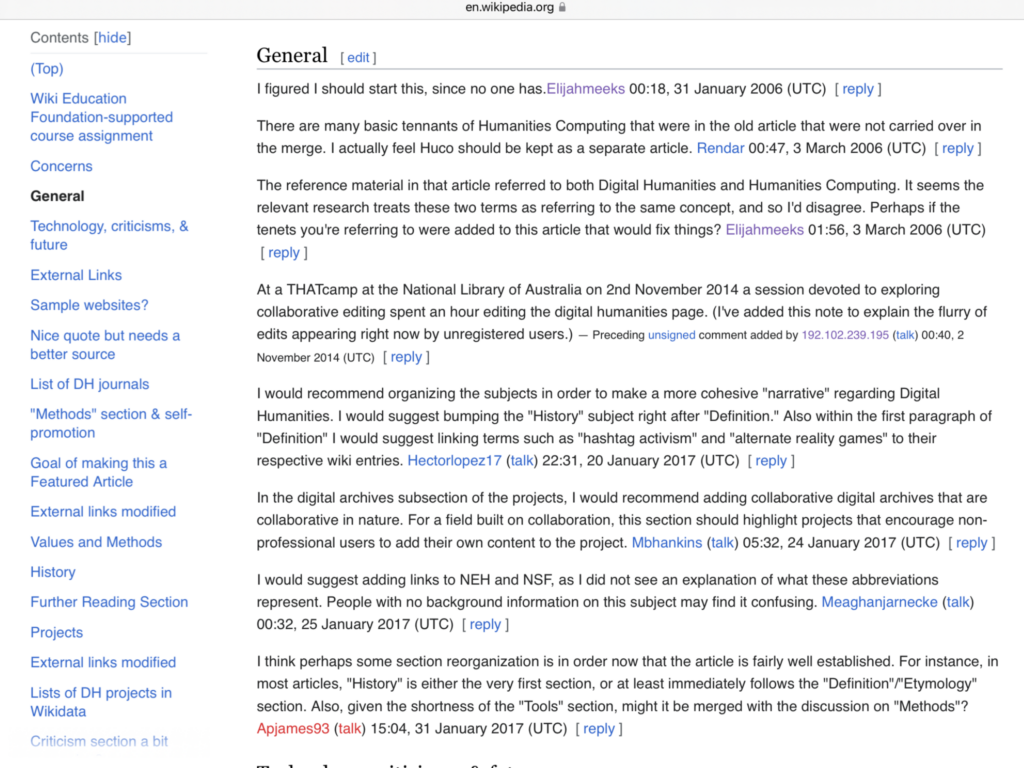Over the past few years, the prevalence of Artificial Intelligence (AI) has grown exponentially, as technology corporations are competing with each other for users, and therefore, profits. However, their goals have come into conflict with one of the most popular websites on the internet, the online, global encyclopedia known as Wikipedia.
Wikipedia began in January, 2001 by co-founders Larry Sanger and Jimmy Wales on the belief that information should be easily accessible to anyone and everyone, and free. It was developed on the idea that by allowing open access to crowd sourced information, users with knowledge would participate in a peer review and editing process in order to ensure factually correct information. In addition to the information on a Wikipedia page, they offer extra tools for users to gain a more thorough understanding of the process by which those with knowledge and experience in the field developed the page through collaborative means. Readers can look up the history of how the individual page developed, how many people contributed to the facts and information, how many times the page underwent edits, by whom and when. By utilizing the Talk feature, users can read about past controversies and concerns between the editors of the page, to see the process and dialogue in decision making and problem solving. The editors took the time to hold virtual debates and discussions over the definition of Digital Humanities, what information to include and in which order, eventually coming to a group consensus. They also continue to make changes and revisions as the field grows and adapts to the ever growing evolution of computational tools, including artificial intelligence (AI).
One of the benefits that users have found with new tools of AI, specifically ChatGPT, is its brief summation of answers to questions, compared to longer pages for users to read from a Wikipedia page. Ironically, because of Wikipedia’s open and free access, AI tools have gotten their information from Wikipedia. ChatGPT, a tool of AI, can provide a definition of Digital Humanities too, but it is more condensed and less detailed than that of Wikipedia. However, the information has been based on Wikipedia’s page, so ultimately their definition does come from those with expertise in the field. ChatGPT’s definition is brief, but provides key points for the user to gain a better understanding of the topic, without having to read a longer, more detailed description. However, there are still problems with relying on AI tools for information, most notably the absence of citations and source links to certify that the facts come from experts. There is still the possibility for AI to spread misinformation, without proper oversight.
The Wikipedia Foundation, aware of the risks posed from AI, have been working on ways to adapt, instead of possibly becoming obsolete. One such idea is that any future AI users would need to employ a plug-in in order to access information from a Wikipedia page, thereby giving the open source information website credit. Ultimately, the general sense from the group of editors, referred to as Wikipedians, is that AI will not be self sustaining without continued human input and human fact checking capabilities. The tools on Wikipedia’s pages; the history and talk features, give examples of how much human effort goes into any one article, in terms of peer review, fact checking, and editing the page. There is also a possibility that by adapting some of AI tools, Wikipedia could attract more editors to their sites, as their terms of use and rules for editing have been known to scare some potential editors away. AI tools have the capability to summarize and refine the terms for easier understanding.
What is key then, when using new AI tools, is to read their disclaimer at the bottom of their page, which reads, “ChatGPT can make mistakes. Consider checking important information.”
The following images are from Wikipedia’s Digital Humanities pages:



